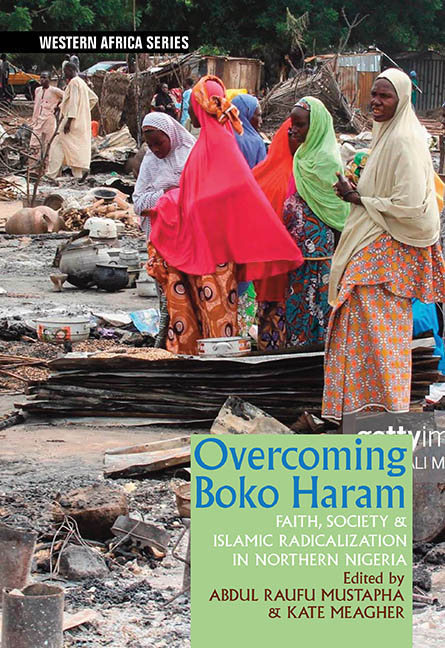Book contents
1 - Introduction Faith, society & Boko Haram
Published online by Cambridge University Press: 21 March 2020
Summary
Introduction
It is now a decade since the violent Islamic group popularly known as Boko Haram launched its reign of terror in northern Nigeria. While Boko Haram's considerable territorial acquisitions in the North East have largely been recaptured, the insurgency still rages on. To date, Boko Haram has claimed more than 27,000 lives, displaced some 2 million people, and has cost the Nigerian economy an estimated $17 billion in infrastructural damage and output losses – not to mention the apocalyptic devastation it has wrought across vast swaths of north-eastern Nigeria, and the traumatized communities it has left behind (Munshi 2018a, 2018b; Reuters 2018; Thurston 2018; Masha et al. 2016). The group rose to international attention for the kidnapping of 276 school girls in the north-eastern town of Chibok, but Boko Haram is most infamous for its extreme brutality. In 2015, the Global Terrorism Index (2015, 2) declared Boko Haram ‘the most deadly terrorist group in the world’, and still classifies it among the four most violent terrorist groups (Global Terrorism Index 2018).
Emerging from a radical Salafist movement in the distant northeastern Nigerian city of Maiduguri, Boko Haram was galvanized by a violent confrontation with the Nigerian State in July 2009 in which over 700 members died and their leader, Mohammed Yusuf, was killed in police custody. One year later, in July 2010, Boko Haram returned as a full-blown terrorist group under the choleric leadership of Abubakar Shekau. A shocked country witnessed this band of extremists evolve from hit-and-run operations such as suicide bombings, kidnapping and clan-destine attacks on state buildings, into a complex insurgency deploying heavy weapons, armoured personnel carriers, technicals, and drones. By 2015, the insurgency had succeeded in capturing a territory the size of Belgium, and declared an independent Islamic caliphate in the northeastern corner of Nigeria, as well as pledging allegiance to Al-Qaeda and later to Islamic State (Munshi 2018a; Thurston 2018).
Over the years, Boko Haram has proven as resilient as it is destructive. Following a concerted military offensive, President Muhammadu Buhari declared in December 2015 that Nigeria had ‘technically won the war’ against Boko Haram (BBC 2015). Unfortunately, this announcement proved premature.
- Type
- Chapter
- Information
- Overcoming Boko HaramFaith, Society and Islamic Radicalization in Northern Nigeria, pp. 1 - 30Publisher: Boydell & BrewerPrint publication year: 2020
- 1
- Cited by



